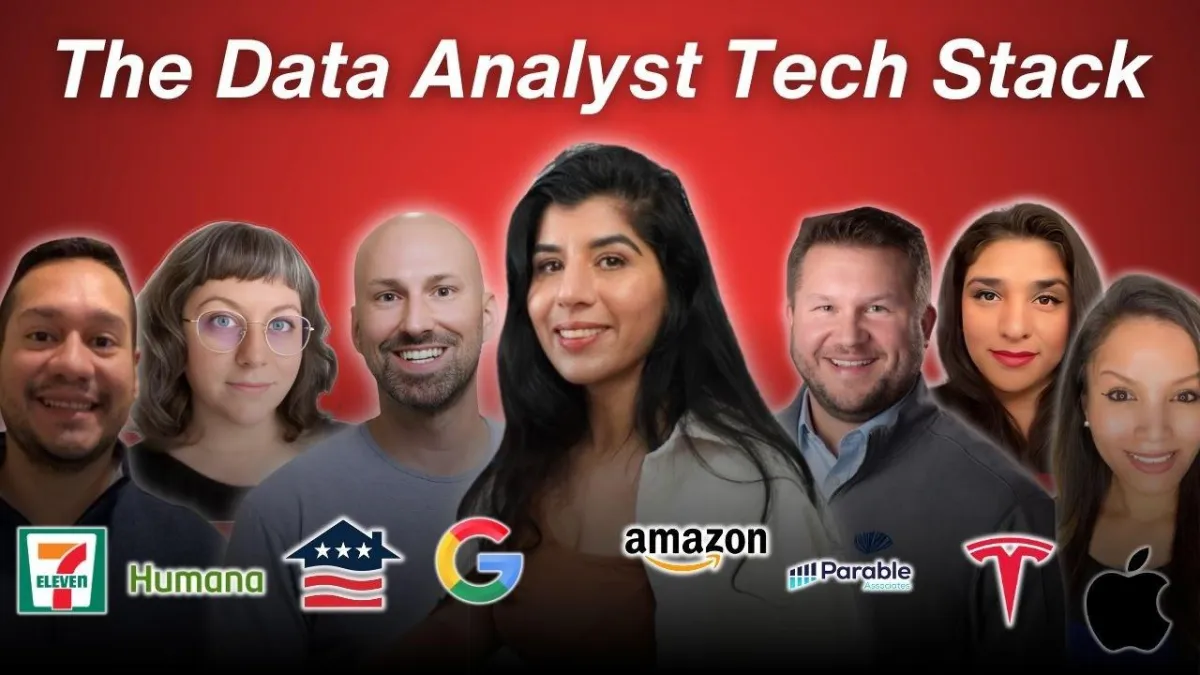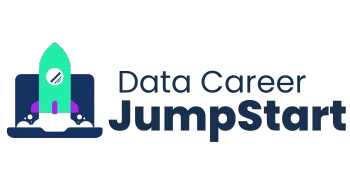
💻 I Asked 7 Data Analysts What Tools They ACTUALLY Use
There are over 2,000 data tools on the market.
But you don’t need to know them all.
I asked real data analysts from companies like Google, Apple, Tesla, and Amazon what tools they actually use every day.
Their answers were shockingly… boring.
And that’s the point.
Think an analyst at Apple is using some secret, complex coding language?
Nope.
Jen Hawkins, a data analyst at Apple, told me she uses two things all day: Excel and Tableau. That's it.
She went from being a delivery driver to a six-figure analyst at Apple. Her daily toolkit is built on the same software you probably already have on your computer.
Sundas Khalid worked at both Google and Amazon. The one tool she used most? SQL.
No surprise there.
And the pattern continues everywhere:
Ryan Ponder (mortgage industry): SQL Server and Tableau
Erin Shina (senior analyst at Fortune 50 company Humana): SQL and Excel
Lily BL (Analyst at Tesla): Jira and Excel
Yes, even Tesla uses Excel.
Why This Matters for YOU
There's a disease going around in the data world. It's called Tool FOMO.
You see someone on LinkedIn flexing their new Databricks cert. Someone else posts about "scaling pipelines with Airflow" or building "real-time dashboards with Looker."
And you panic.
"Do I need to learn this too? Am I behind? Should I add another tool to my resume?"
STOP!
Most companies (even tech giants) still run on Excel, SQL, and one BI tool.
Why?
Excel is the tool everyone knows. It makes collaboration easy.
SQL is non-negotiable. It’s how you access the truth.
BI tools help you tell stories that make sense to the business.
Stop Tool Hopping
Instead of learning 10 tools poorly, do this:
Master SQL (focus on joins, window functions, CTEs)
Get scary good at Excel (pivot tables, VLOOKUP, macros)
Pick ONE BI tool and become dangerous with it
The 80/20 rule applies here:
80% of analyst jobs use these 3 tool categories
20% use specialized stuff you can learn on the job
The fanciest tool won't get you hired. The right tool used well will.
Stop chasing shiny objects. Double down on the boring basics. That's what hiring managers actually care about.
SQL. Excel. One BI tool.
Master those and you'll be ahead of 90% of applicants.
(And if you're wondering what the exact top 5 tools are based on 3,000 real job postings I scraped? Click the link.)


